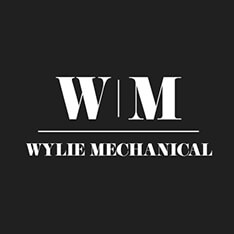In today’s environmentally conscious world, it’s more important than ever for homeowners to consider energy-efficient heating solutions to reduce their carbon footprint and save on energy costs. With numerous options available, like high-efficiency furnaces, boilers, and heat pumps, making an informed decision about the right heating system for your residential or new construction project can significantly increase your home’s comfort and energy savings in the long run. Wylie Mechanical will delve into the world of energy-efficient heating systems and discuss the benefits they provide, including reduced greenhouse gas emissions, lower energy bills, and improved comfort for your family.
Energy-Efficient Heating Systems: Benefits and Features
To make an informed decision on the best energy-efficient heating system for your residential or new construction project, it’s vital to understand the different available options and their unique features and benefits. This section will break down three energy-efficient heating systems that can greatly contribute to your home’s comfort and energy savings: high-efficiency furnaces, boilers, and heat pumps.
1. High-Efficiency Furnaces: Maximizing Heat Output and Lowering Utility Bills
Today’s high-efficiency furnaces offer a significant upgrade over older models, boasting improved energy efficiency ratings and advanced features designed to optimize heat output and distribution. These furnaces operate with fewer energy losses, ensuring maximum heat is extracted from the fuel source and effectively distributed throughout your home.
One standout feature of high-efficiency furnaces is their sealed combustion system. By drawing air directly from outside for combustion, rather than utilizing indoor air, this sealed system eliminates the potential for energy losses, further improving overall efficiency.
2. Energy-Efficient Boilers: Enhanced Performance and Minimal Heat Losses
Modern energy-efficient boilers have significantly improved compared to older models, utilizing advanced technologies to minimize heat losses and maximize heat transfer. One such feature present in condensing boilers is the secondary heat exchanger, which recovers heat from exhaust gases that would otherwise be wasted.
These efficient boilers often have higher initial costs, but the potential energy savings over time can more than makeup for this investment. Energy-efficient boilers are a viable option for those looking to reduce their energy consumption without sacrificing home comfort.
3. Heat Pumps: Environmentally Friendly Heating and Cooling
Heat pumps are an excellent choice for homeowners seeking an energy-efficient heating and cooling solution. By transferring heat between your home and the outdoors rather than generating it directly, heat pumps can significantly lower energy consumption compared to traditional heating and cooling methods.
There are two primary types of heat pumps: air-source and ground-source (or geothermal). While air-source heat pumps extract heat from the outdoor air, ground-source systems leverage the earth’s stable temperature to improve efficiency. Geothermal systems generally require a higher upfront investment, but their long-term energy savings and stable performance make them a popular choice for energy-conscious homeowners.
Selecting an Energy-Efficient Heating System: Key Factors to Consider
When evaluating energy-efficient heating options for your residential or new construction project, it’s crucial to consider several important factors. This section will outline four essential aspects to help guide your decision-making process.
1. Energy Efficiency Ratings
Compare the energy efficiency ratings of different heating systems, such as AFUE for furnaces and boilers or Seasonal Energy Efficiency Ratio (SEER) and Heating Seasonal Performance Factor (HSPF) for heat pumps. These numbers can give you a clear idea of how much energy each system will consume and what potential savings you can expect.
2. Initial Investment and Long-Term Savings
Consider the initial costs of various energy-efficient heating systems against potential long-term energy savings. While some systems may have higher upfront costs, their long-term savings may more than offset this investment.
3. Ongoing Maintenance Costs
Evaluate the maintenance requirements and costs associated with each heating system. Proper maintenance can significantly enhance the energy efficiency and longevity of your chosen system. Be sure to schedule regular professional tune-ups and inspections to maximize energy efficiency.
4. Climate and Region-Specific Factors
Your location and climate are crucial factors when choosing an energy-efficient heating system. For example, heat pumps may be more suitable for milder climates, whereas high-efficiency furnaces and boilers may be a better fit for colder regions that require more powerful heating solutions.
Conclusion
Investing in an energy-efficient heating system is wise for homeowners looking to reduce energy consumption, cut utility costs, and enjoy improved home comfort. By understanding the features and benefits of various energy-efficient heating options, you can decide the best solution for your residential or new construction project.
Our experienced technicians at Wylie Mechanical are equipped to help you navigate the world of energy-efficient heating systems and select the ideal option for your specific needs. Contact our HVAC company in Cornwall, ON today to discuss your project and let our professionals guide you toward a more sustainable and comfortable home.





